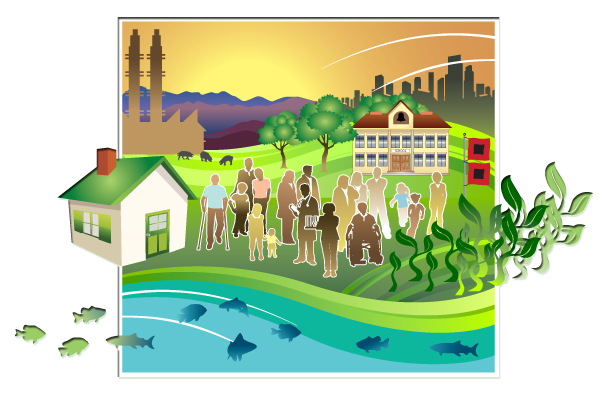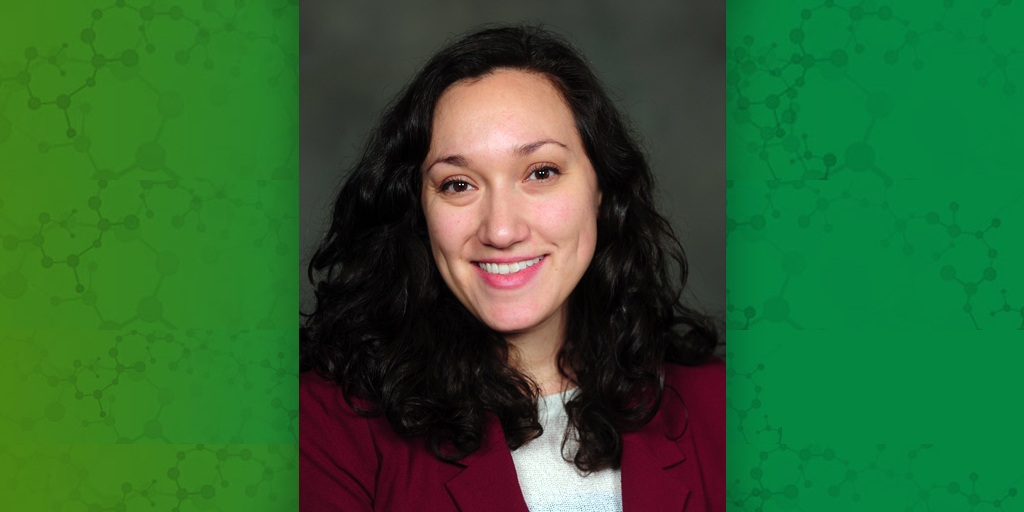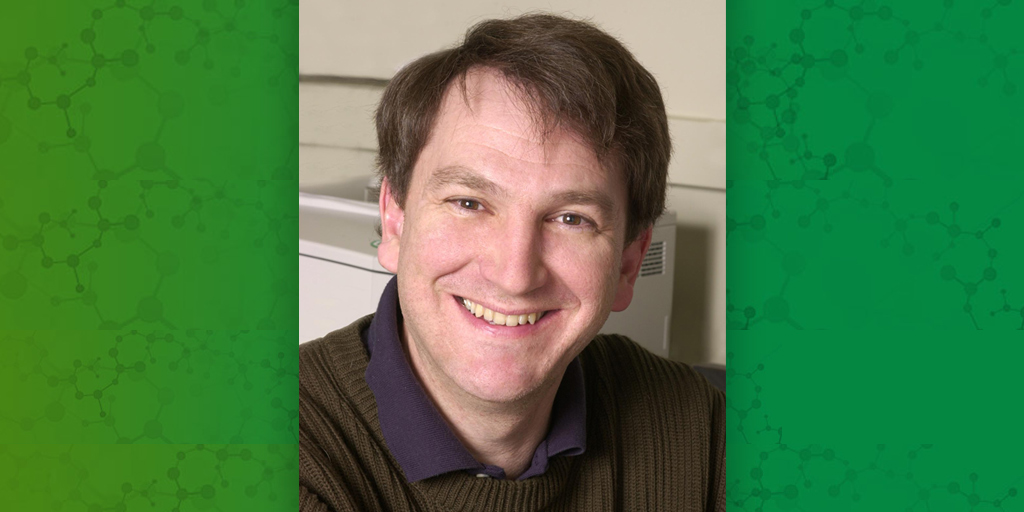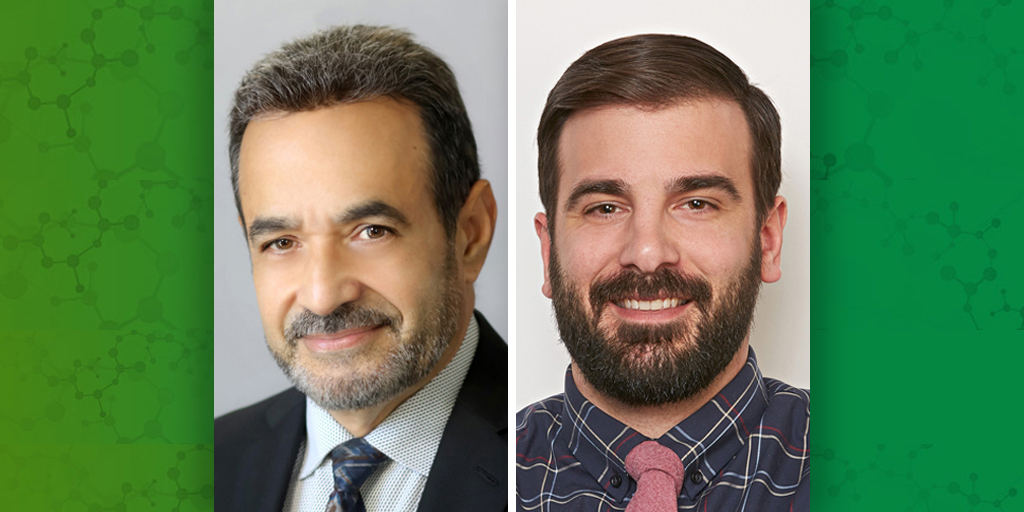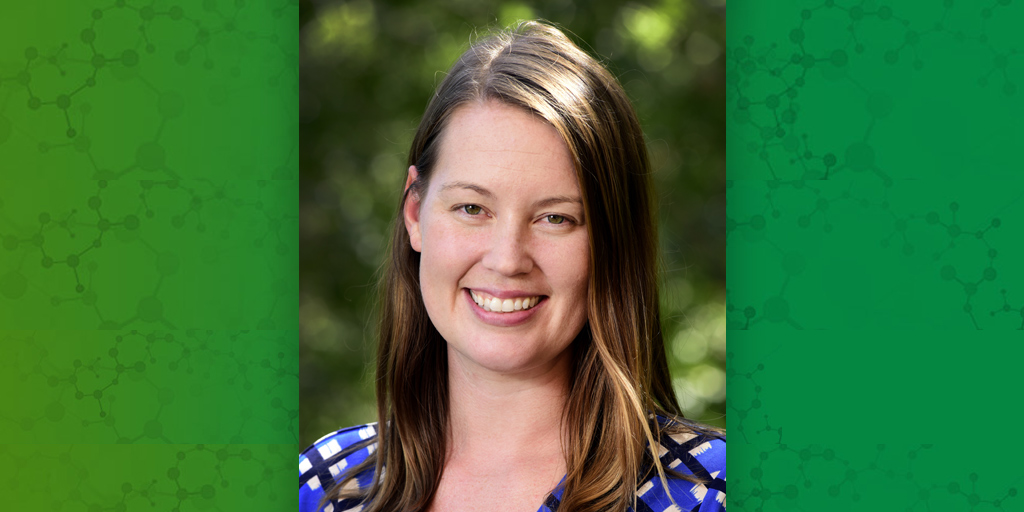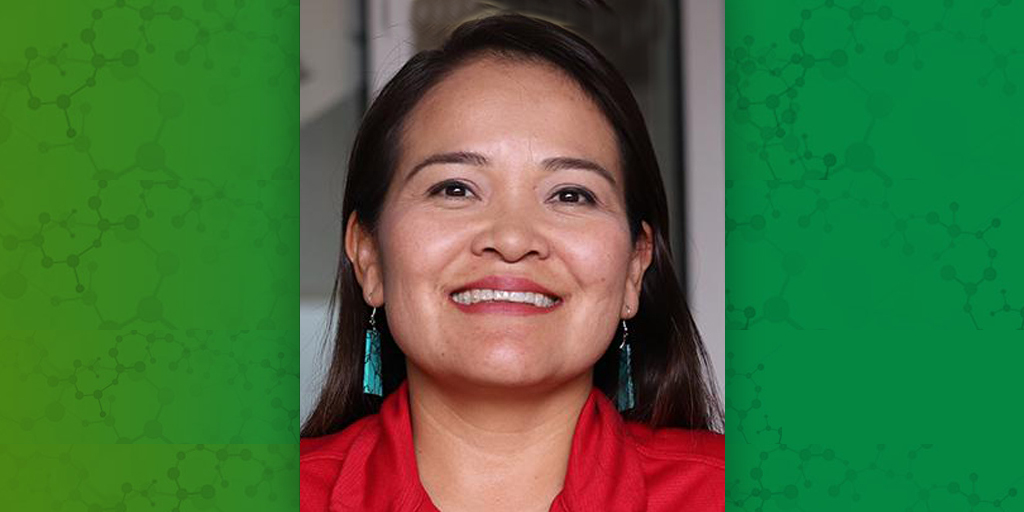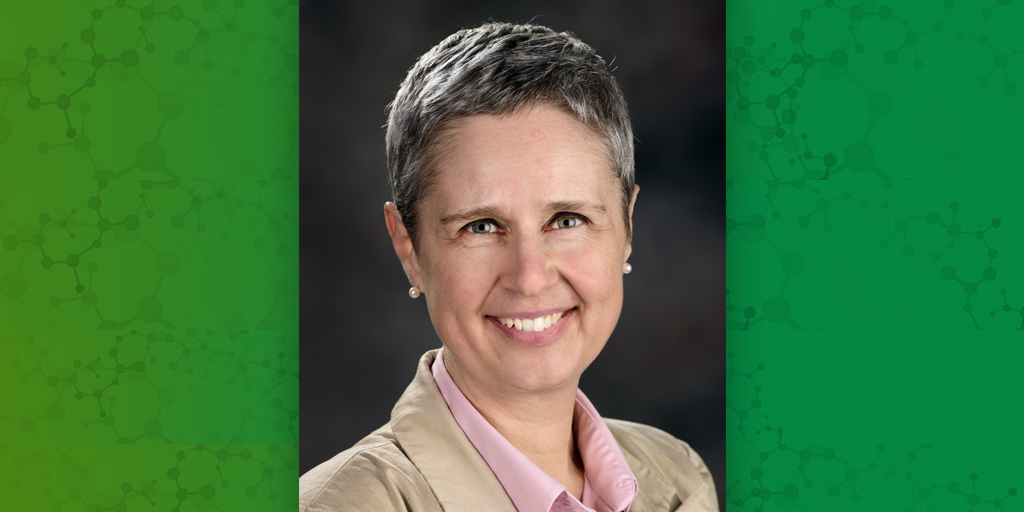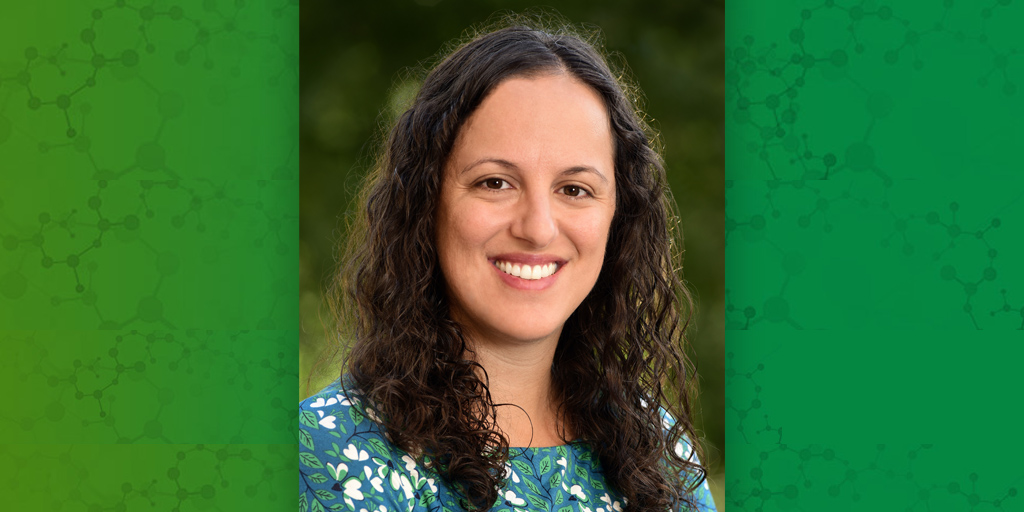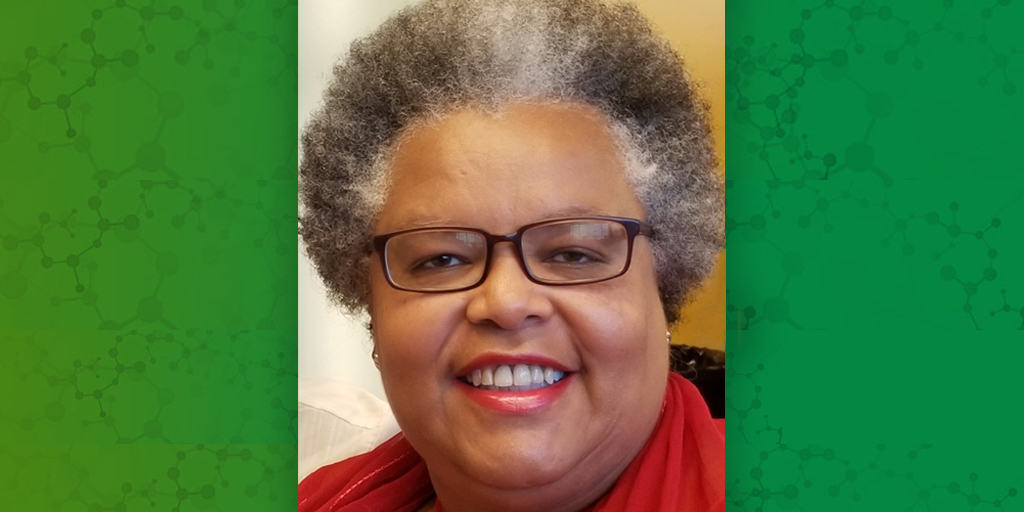Community Grant Awardees Build Relationships and Address Environmental Health Issues
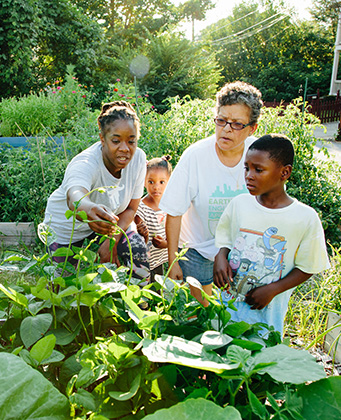
A HERCULES community grant recipient partnered with a community facing food insecurity to create a network of home farmers, which increased community cohesion and resilience.
(Photo courtesy of Melanie Pearson)
A team at Emory University’s HERCULES Exposome Research Center effectively builds relationships between researchers and communities through their grant program. HERCULES, an NIEHS-funded environmental health sciences core center, aims to enhance the capacity of local communities to address their environmental health concerns.
The HERCULES Community Grant Program uses part of their NIEHS grant to fund small local grants for Atlanta communities as they address their own environmental health concerns. A paper describes the program’s implementation and evaluation of its first three years. The researchers hope that other scientists in academic centers who want to strengthen community engagement efforts will replicate and adapt the program.
“When HERCULES started in 2013 as a new center, we wanted to move beyond outreach approaches that involve community members as passive recipients of research findings,” explained Melanie Pearson, Ph.D., director of the Community Engagement Core at HERCULES. “Along with our Stakeholder Advisory Board, we considered several approaches, and ultimately decided on a community grant program. We liked the idea of providing funding directly to community organizations so that the projects would be community driven and led.”
Implementation of the Community Grant Program
HERCULES launched the Shaheed DuBois Community Grant Program in 2014. It ran for three cycles and awarded 13 one-year grants of $2,500 to 12 small community organizations with minimal permanent staff. These organizations identified environmental health concerns, implemented their own solutions, and established relationships with the community through activities like mobilizing residents for a cleanup day, training community members to disseminate information on smoke-free homes, and involving residents in community gardening activities.
The program’s creators took the small size of their target organizations into account when planning implementation. For example, in the third cycle of the program, a grant-writing workshop was offered before the application deadline, reflecting previous concerns that smaller organizations were at a disadvantage. Moreover, HERCULES personnel pre-reviewed submitted applications and provided feedback to applicants who could then revise and resubmit their application. HERCULES personnel also offered technical assistance to grant recipients in the form of skills-training and information sharing that covered topics such as progress tracking and reporting. Overall, grantees found the hands-on technical assistance helpful.
Community Grant Program Addresses Community Health Concerns and Increases Community Capacity
Grantees addressed a variety of community health concerns such as water pollution, access to healthy foods, indoor smoking, and waste disposal. Even across such varied issues, grantees increased community members’ knowledge, awareness, and involvement through trainings, workshops, and volunteer opportunities. For example, one grantee trained 20 community members to carry out a door-to-door campaign promoting smoke-free homes.
Grantees also increased their own organization’s capacities by participating in the grant program. For example, grantees were able to confirm or refine their approaches, such as one grantee who confirmed their organization’s priority of investing in soil health. Grantees also emphasized that they learned the importance of engaging stakeholders and working directly in the community. Furthermore, at the end of the award period, most grantees had specific goals for continuing their projects, and some had already obtained additional funding, which they attributed to their accomplishments with the community grants.
When asked about participation in the program, one grantee shared, “With the community grant, we’ve been able to demonstrate our capacity to deliver quality programming and to speak to the results. This has helped us obtain new funding.”
“One of the goals of our grant program was to create sustainable projects in the community,” said Pearson. “Of course, we hoped that the grants would allow organizations to address immediate community concerns, but we also wanted to build community capacity, and we do see that with many of the grantees’ projects. Some projects were institutionalized – one project ended up changing local policy, and another was maintained by community members after our funding ran out. We also saw new partnerships and larger volunteer bases as a result of these grants. Overall, the evaluation of the program demonstrated that the grants were a great way to build capacity in a way that was really relevant to the communities themselves.”
Community-academic partnerships were enhanced by the community grant program. The program gave community-based organizations an entry point to talk with Emory scientists, staff, and students, while simultaneously increasing scientists’ awareness of Atlanta communities’ environmental health concerns. Through the program, the community engagement team also identified potential partners for future collaboration with HERCULES scientists, and some projects, including ones on neighborhood flooding and on soil contamination, developed into collaborative research projects funded through the HERCULES Pilot Program. The partnership-building that the community grant program accomplished is in keeping with the goal of informing the larger HERCULES team about community issues to better respond to local needs.
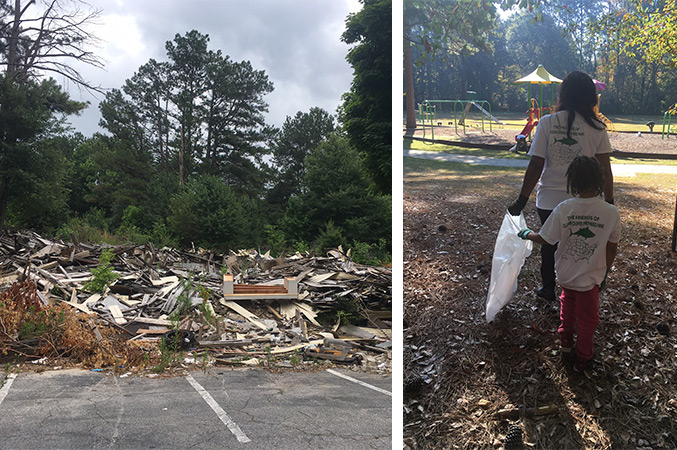
One grantee project facilitated relationships among officials and residents of a low-income community in order to eliminate dumping on the property (left) and a neighborhood park association aimed to transform the local youth and young adult population into environmental community stewards (right). (Photos courtesy of Melanie Pearson)
Improved and Expanded Community Grant Program
Based on the first three grant cycles, HERCULES and its Stakeholder Advisory Board made some changes to the program’s structure, now called the Clarence “Shaheed” DuBois Exposome Roadshow and Community Grant Program. The new program provides grantees up to $6,500 over three years in four phases, to organize, plan, take, and sustain action around a community’s priority environmental health issue. This longer relationship between grantees and HERCULES allows for more tailored technical support and for community groups to better address social and environmental injustices.
“We have had three communities complete our new four-phase program and are excited to see community groups having an effect on local environmental public health concerns,” said Pearson. “For example, one group of neighbors decided to address industrial pollution in their community, and, with the program, were able to coalesce as a group and develop an action plan to promote community science. Their use of community science led to funding for air sampling and revisions to the city’s industrial zoning codes.”
In the future, Pearson and her team will continue to implement and evaluate this new program, by assessing the processes and outcomes via document review, qualitative interviews, and focus groups with the community members who participate. The information they learn will inform future iterations of the program and its dissemination to others who wish to enhance community capacity to address local environmental and public health concerns. You can read about the past and current grant programs on the HERCULES website.
NIEHS Grantees Serve on White House Environmental Justice Council
NIEHS-funded researchers and community partners are well-represented among members of the White House Environmental Justice Advisory Council, which is supported by the U.S. Environmental Protection Agency. Members will provide their expertise and insights to advance the concerns of historically marginalized communities in climate and environmental policy. NIEHS-funded members include:
Read the executive order that founded the White House Environmental Justice Advisory Council.
New Portal Provides Infectious Disease Resources for Worker Safety
The NIEHS Worker Training Program develops trainings and resources to improve the health and safety of workers. The new Material Upload and Search Tool for Infectious Disease (MUSTID) is a searchable portal containing infectious disease resources for worker safety. Most materials in the portal are about COVID-19 and other respiratory infectious diseases. The search portal contains infographics, guidance documents such as policies and regulations, and scientific research findings. The Material Upload and Search Tool for Infectious Disease is available to the public. See the tool’s user guide for tips.
Harmful Chemicals May Be Found in Holiday Gifts
December is a month with major gift-giving holidays. Harmful chemicals called endocrine disruptors, such as phthalates and perfluoroalkyl and polyfluoroalkyl substances (PFAS), are found in some consumer products, including toys. These chemicals can accumulate in the body over time, potentially leading to various adverse health outcomes. Podcasts are available to learn more about phthalates and children’s health, and to learn more about the effects of PFAS on children’s health.
Recent research by Leonardo Trasande, M.D., M.P.P., of NYU Grossman School of Medicine, also found a link between lifetime phthalate exposure and premature death from all causes and cardiovascular disease.
Comprehensive Indoor Air Quality Resources Updated
NIEHS conducts a wide range of research on air pollution that affects indoor air quality, including citizen science research. Indoor air quality resources have been curated on a recently updated NIEHS webpage on indoor air quality. The resources describe how specific contaminants such as allergens and formaldehyde affect indoor air quality. The webpage also describes the work NIEHS is doing on indoor air quality and health, including supporting research and community involvement. For example, you can read about the community partnership work at the NIEHS core centers at the University of Kentucky Center for Appalachian Research in Environmental Sciences and the University of Cincinnati Center for Environmental Genetics where high school students developed home radon testing kits. You can also listen to podcasts about youth-led research at the Center for the Health Assessment of Mothers and Children of Salinas, and using culturally-appropriate messaging to reduce smoke in homes.
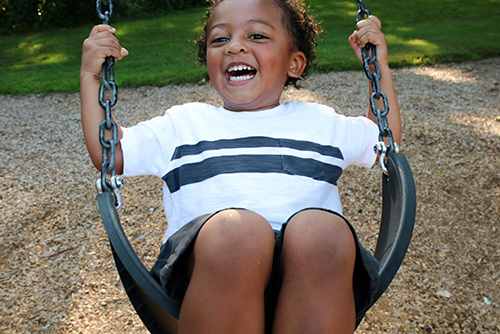
PEPH Environmental Health Chat Podcast Series
Why Neighborhoods Matter: Brain Development in Children
PEPH Environmental Health Chat Podcast Series
Why Neighborhoods Matter: Brain Development in Children
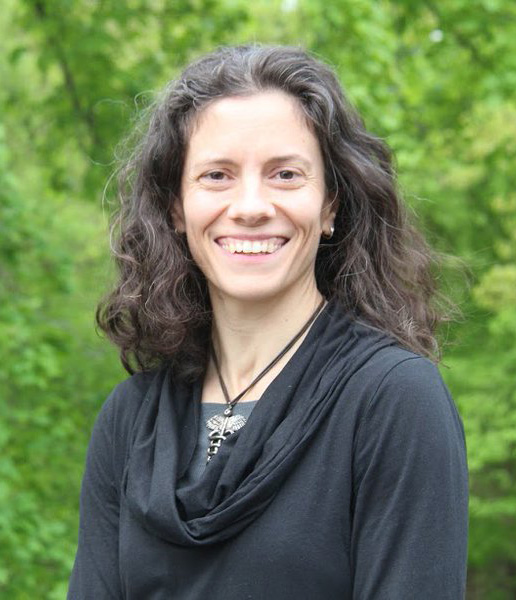
PEPH Grantee Highlight
Perry Sheffield, M.D., M.P.H.
Perry Sheffield, M.D., M.P.H., of the Mount Sinai Transdisciplinary Center on Early Environmental Exposures, is a pediatrician who seeks to understand how environmental health affects children’s health outcomes. Sheffield and her team examine the connections between environmental factors and children’s health indicators. For example, the team has found that emergency room visits for children increase during extreme heat, and they are interested in understanding what drives this outcome. Working with community partners is a central part of Sheffield’s work. She and her team have worked with the community to develop Prescriptions for Prevention tools, which are guides for health care providers to discuss environmental exposures during clinical visits. Sheffield and her team are also working with community members to address environmental justice through research. She and her colleagues incorporate considerations of structural racism in research frameworks to address environmental health concerns in historically marginalized communities.
Funding Opportunites
NIH Blueprint and BRAIN Initiative Diversity Specialized Predoctoral to Postdoctoral Advancement in Neuroscience Award (F99/K00 Clinical Trial Not Allowed)
The NIH Blueprint and Brain Research through Advancing Innovative Neurotechnologies (BRAIN) Initiative Diversity Specialized Predoctoral to Postdoctoral Advancement in Neuroscience Award is intended for individuals who have demonstrated an interest in a neuroscience research career in NIH Blueprint mission-relevant areas and/or BRAIN Initiative research areas. This award will support a defined pathway across career stages for outstanding graduate students from diverse backgrounds, including those from groups underrepresented in biomedical and behavioral sciences. This two-phase award will facilitate completion of the doctoral dissertation and transition of talented graduate students to strong neuroscience research postdoctoral positions and will provide career development opportunities relevant to their long-term career goal of becoming independent neuroscience researchers.
Deadline: December 15, 2021
Letter of Intent: Due 30 days prior to application due date
PHS 2021-2 Omnibus Solicitation of the NIH, CDC, and FDA for Small Business Innovation Research Grant Applications (Parent SBIR [R43/R44] Clinical Trial Not Allowed)
Enables U.S.-owned and operated small businesses to conduct research and development that has a strong potential for commercialization. This award and the associated PHS 2021-2 Omnibus Solicitation of the NIH and CDC for Small Business Innovation Research Grant Applications (Parent SBIR [R43/R44] Clinical Trial Required) provide funds for small businesses to stimulate technological innovation in the private sector and strengthen the role of small business in meeting federal research and development needs. The related Small Business Technology Transfer announcements (PHS 2021-2 Omnibus Solicitation of the NIH for Small Business Technology Transfer Grant Applications (Parent STTR [R41/R42] Clinical Trial Not Allowed) and PHS 2021-2 Omnibus Solicitation of the NIH for Small Business Technology Transfer Grant Applications (Parent STTR [R41/R42 Clinical Trial Required)) aim to foster technology transfer through cooperative research and development between small businesses and research institutions. Applicants are encouraged to submit grant applications in response to NIH-identified topics.
Deadline: January 5, 2022
Notice of Special Interest: Administrative Supplements for Summer Research Experiences for Students and Science Teachers
Supports summer research experiences in the environmental health sciences for high school students, college undergraduates, master’s degree candidates, medical students, secondary school science teachers, and science professors from community, junior, or technical colleges, as well as primarily undergraduate institutions. These supplements are intended to introduce students and teachers to research in the environmental health sciences that would not otherwise be available to them through their regular course of study.
Deadline: Jan. 31, 2022
Virtual Consortium for Translational/Transdisciplinary Environmental Research (ViCTER) (R01 Clinical Trial Optional)
Fosters and promotes early-stage multi-disciplinary collaborations and/or translational research efforts among fundamental (technology and mechanism oriented), clinical (patient-oriented) and population-based researchers in the environmental health field. The collaborative teams will come together in common interest to investigate potential linkages between human health and one or more environmental stressor(s). The ViCTER program is intended to support innovative high-risk, high-reward cross-disciplinary and/or translational research projects that are more difficult to achieve in a typical R01 application. Collaboration among investigators at different institutions through a virtual consortium arrangement are encouraged.
Deadline: December 1, 2020
Letter of Intent: Due 30 days prior to the application due date
Pediatric Immune System – Ontogeny and Development (INTEND) (R01 Clinical Trial Not Allowed)
Supports research which correlates immune system in general and development patterns in particular, between two or more age groups - neonates, infants, and children and adolescents to understand the evolution or immune ontogeny in human immune system development focusing on either or both, innate and adaptive immune systems with additional focus on internal factors like the microbiome and/or external factors like the environment.
Deadlines: October 5, 2021; February 5, 2022
The Role of Work in Health Disparities in the U.S. (R01 Clinical Trials Optional)
Supports innovative population-based research that can contribute to identifying and characterizing pathways and mechanisms through which work or occupation influences health outcomes and health status among populations with health and/or health care disparities, and how work functions as a social determinant of health. Of particular interest are projects designed to examine pathways and mechanisms using conceptual models grounded in minority health and health disparities theories that recognize that health disparities arise by multiple and overlapping contributing factors acting at multiple levels of influence. Studies must examine NIH-designated U.S. health disparities populations. NIEHS is interested in applications that focus on the intersection of work as a social determinant of health, the physical environment (that includes exposures to toxicants), and other social determinants of health in creating or intensifying environmental health disparities at the population level. Community engaged research approaches are strongly encouraged as well as applications that move the science of environmental health disparities towards achieving environmental justice for affected populations.
Deadline: October 5, 2021; February 5, 2022
Clinical Relevance of the Linkage Between Environmental Toxicant Exposures and Alzheimer’s Disease and Related Dementias (R01 Clinical Trial Not Allowed)
Supports mechanistic and early translational research focused on a more rigorous in-depth examination of the potential interactions of environmental toxins with genetic and non-genetic molecular targets known to influence Alzheimer's disease and Alzheimer's disease-related dementias. Anticipated outcomes include an improved understanding of neurological mechanisms of chemical toxicities related to Alzheimer’s disease and Alzheimer’s disease-related dementias, more evidence-based potential biomarkers of exposure and toxicity for those most at risk, as well as more data to support causality and potential approaches for mitigation.
Deadline: March 11, 2022
Letter of Intent: Due 30 days prior to application due date
Environmental Literacy Program: Increasing Community Resilience to Extreme Weather and Climate Change (NOAA Cooperative Agreement)
Supports projects that develop the collective environmental literacy necessary for communities to take actions that build resilience to extreme weather and climate change in ways that contribute to community health, social cohesion, and socio-economic equity. This funding opportunity is soliciting two types of projects through separate competitive priorities. Priority 1 awards are intended to fund new projects located in Central and Eastern Regions of the United States. Note that pre-applications are required for Priority 1 applications. Only those institutions that receive authorization from NOAA are eligible to submit a full application. Priority 2 awards will support the evolution of projects funded under the 2015-2018 funding opportunities from this program. Projects should demonstrate how they will engage children, youth, and/or adults to build these capabilities, particularly through active and social learning, during the award period. Projects should leverage and incorporate relevant state and local resilience plans and collaborate with individuals and institutions that participate in efforts to develop or implement those plans. Projects should support diversity, equity, inclusion, and climate justice in all aspects of the project.
Deadline: March 17, 2022
Environmental Justice Video Challenge for Students
The EPA and partners have launched the Environmental Justice Video Challenge for Students to enhance communities’ capacity to address environmental and public health inequities. The goals of the challenge are to 1) inspire students at accredited colleges and universities in the U.S. and its territories to work directly with communities in the identification and characterization of environmental justice challenges using data and publicly available tools, and 2) help communities (including residents and other stakeholders) address environmental justice challenges and/or vulnerabilities to environmental and public health hazards using data and publicly available tools. There are two phases for the challenge. In Phase 1, students will create a video to demonstrate innovative approaches to identify and characterize an environmental justice issue(s) in a select community using data and publicly available tools. Students are strongly encouraged to work in teams and identify and collaborate with community organizations that may bring important understanding and perspective to the environmental justice challenge(s) the community is facing. In Phase 2, students will develop a video to display how they used data and publicly available tools to identify strategies and opportunities to address an identified environmental justice issue(s) and worked with a community-based organization(s) to inform strategies for intervention and/or facilitated effective community engagement and advocacy on the environmental justice issues. Phase 1 of the challenge is currently open. Details on Phase 2 will be posted at a future date. Registration for an informational webinar is now open.
Deadline (Phase 1): April 1, 2022



